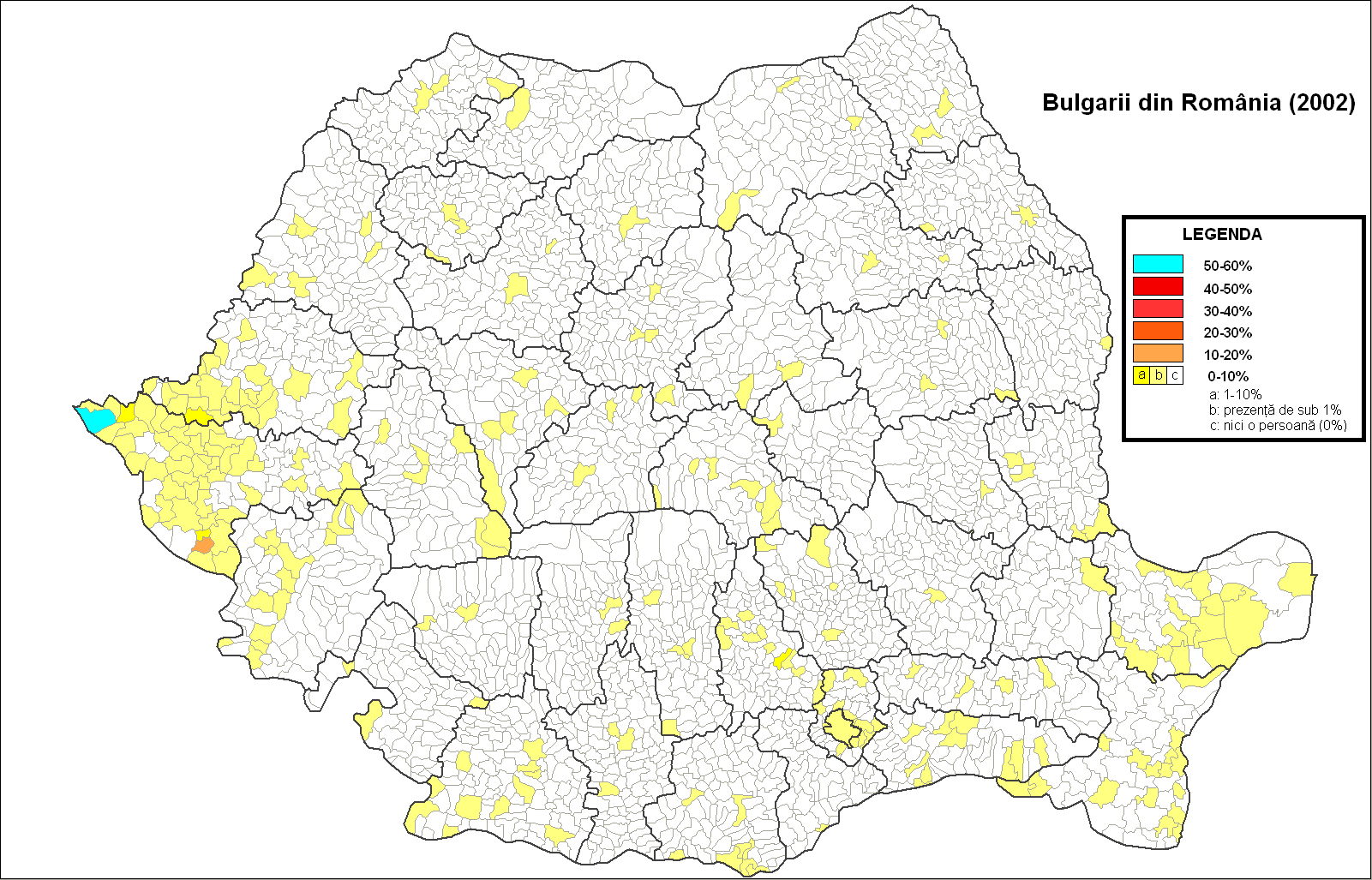
Bulgarians in Romania
Bulgarians (Romanian: bulgari) are a recognized minority in Romania (Bulgarian: Румъния, Rumaniya), numbering 7,336 according to the 2011 Romanian census, down from 8,025 in 2002.[1] Despite their low census number today, Bulgarians from different confessional and regional backgrounds have had ethnic communities in various regions of Romania, and during the Middle Ages Bulgarian culture has exerted considerable influence on its northern neighbour. According to one Bulgarian estimate, Romanian citizens of Bulgarian origin number around 250,000.[2] According to the Romanian census of 2021, among the 5,975 ethnic Bulgarians, 3,583 were Roman Catholics, 1,977 were Romanian Orthodox and 21 were Serbian Orthodox.[3]
Historically, Bulgarian communities in modern Romania have existed in Wallachia (Bulgarian: Влашко, transliterated: Vlashko), Northern Dobruja (Bulgarian: Северна Добруджа, translit. Severna Dobrudzha) and Transylvania (Bulgarian: Седмиградско, translit. Sedmigradsko). Currently, however, the Bulgarian community in present-day Romania that has retained most efficiently its numbers, social integrity and strong ethnic identity is that of the Banat Bulgarians, a Roman Catholic minority in the Banat who account for the bulk of the Bulgarian-identifying population of Romania. In Wallachia, there are only few Bulgarians who have preserved their national identity, though the numbers of those who speak Bulgarian and affirm to have Bulgarian ancestors is still high.
Much of the Torlak-speaking Roman Catholic Krashovani who today form a part of the Croatian minority in Romania had declared themselves Bulgarian during the rule Austria-Hungary.[4][5]
The population of undisputed Bulgarian origin aside, Bulgarian researchers also claim that the Hungarian minority of the Székely in central Romania is of Magyarized Bulgar (Proto-Bulgarian) origin[2][6] and the Șchei of Transylvania were Romanianized Bulgarians[2][7] (a view also supported by Lyubomir Miletich[8] and accepted by Romanian writers).[9]
Names[edit]
While the modern Romanian word for Bulgarians is "bulgari", throughout the history they have been known by other names.
The old Bulgarian population—which existed in Romania by the time of the founding of the principality of Wallachia and the inclusion of Transylvania in the Hungarian Kingdom—was referred as Șchei. This word, currently obsolete, derives from the Latin word sclavis, referring to all South Slavs. Currently, the word appears in many place names in Wallachia and Transylvania, among which, Șcheii Brașovului, a neighborhood of Braşov.
The Bulgarians who migrated during the 19th century were known as sârbi (Serbians).[10][11] This word may have been used by Romanians to refer to all South Slavs,[12] but it has also been proposed that they used this ethnic identification to prevent the Ottomans from demanding the Wallachian authorities to return the refugees to their place of origin.[13] Even today, the Bulgarians from Wallachia are called "sârbi" (=Serbians) though they speak Bulgarian and define themselves as "bulgari" (=Bulgarians).[14]









